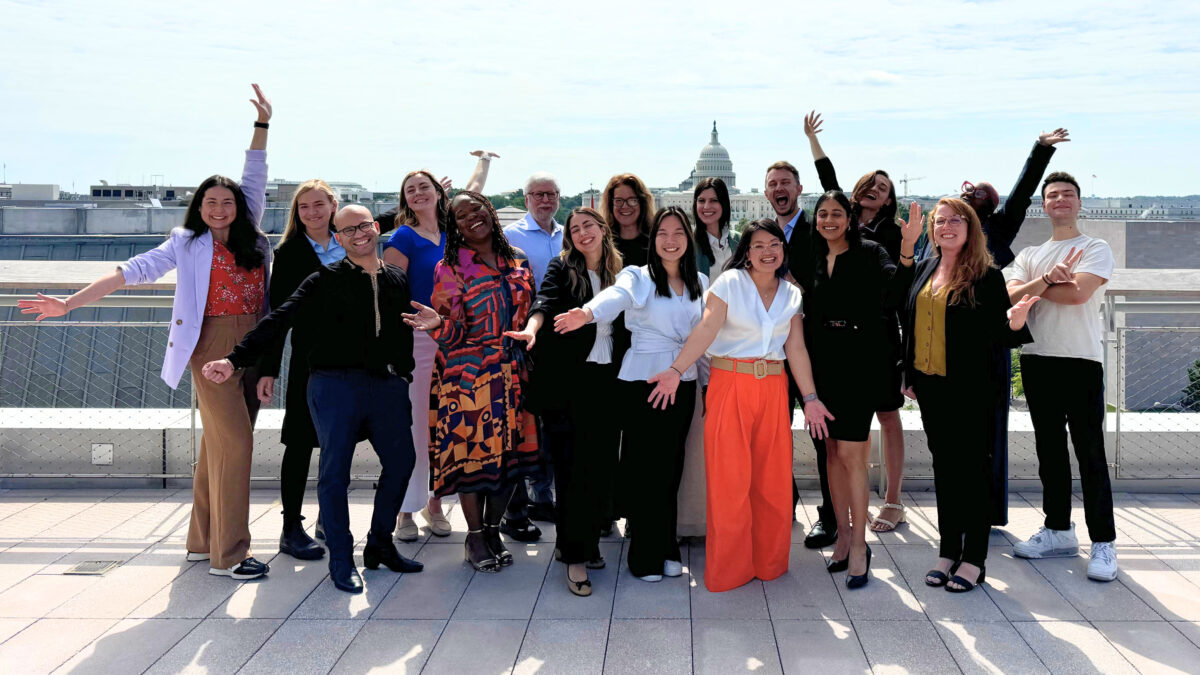A new organization is providing funding and resources to foster belonging and wellness among teens, outside the chaos of social media and the internet.
Young Futures, which launched in March at South by Southwest, announced its inaugural Young Futures Innovators Cohort earlier this month. This accelerator is made up of 10 nonprofits, each focused on helping youth have healthier relationships with technology — and one another.
“Teenagers, their families and the adults that love them have been left on their own to figure out how to grow up in the digital world,” said Katya Hancock, Young Futures’ founding executive director, who’s based in Berkeley, California.
“We’re really here to: a) make it easier to grow up in the digital world, and b) lift up a whole ecosystem of solutions that are already working with teens and preteens in their communities,” Hancock said.
The cohort, which includes organizations from across the nation, will participate in six months of workshops about topics like accounting, legal tips and storytelling, as well as one-on-one mentoring. Each nonprofit will also receive $100,000.
Most of the program will take place virtually, but the program kicked off with an in-person retreat in DC that culminated this week. The DC connection is strong: Seeded by Pivotal Ventures, Susan Crown Exchange and The Goodness Web, Young Futures is fiscally sponsored by the New Venture Fund, a DC-based organization that sponsors other nonprofits including the Climate Justice Resilience Fund and the Trusted Elections Fund.
The accelerator will culminate in an online showcase, per Hancock, where members of the cohort will pitch and present their nonprofits to a virtual room full of funders, potential partners, educators and teens themselves.
Addressing a gap in nonprofit leadership support
Before starting Young Futures, Hancock helped build the firm StartUp Health, a New York-based investment company that supports entrepreneurs working to address pressing health problems like Alzheimer’s and addiction.
Now she wants to provide similar assistance for nonprofits, where she sees a disconnect in leadership support.
“In the startup world, which is where I’ve spent most of my career, there are a lot of programs like this for entrepreneurs and CEOs of startups,” Hancock said. “We’re not just funding, we’re providing this capacity support to help them develop as leaders and get to where they want to go.”
This cohort’s participating organizations come from locales as varied as New Orleans, San Francisco and Louisville. They include Illinois-based ReThink Citizens, which aims to curb cyberbullying by detecting offensive content; and agapi.kids, founded by a New York University professor whose artificial intelligence tool works to help kids build up relational intelligence.
More than 200 nonprofit organizations applied to be a part of the cohort. The applications were reviewed by a six-person committee, half of which was young people.
The accelerator and its organizations’ priorities reflect a reality of teens’ widespread digital accessibility. In a 2023 study by Pew Research Center, about half of teens reported that they use the internet “almost constantly,” and nearly all said they use the internet at least on a daily basis.
Meet the full inaugural cohort
Hancock stressed that the solution is not to totally cut out young peoples’ screen time, but to give them and their families options and tools that are best for the individual. It’s more complicated than just limiting internet and social media access, she said, and conversations need to come from a place of understanding.
“Young people are living in this state of digital tension. And by that, I mean most teenagers know they’re on their phone too much,” Hancock said. “A big part of our ethos is coming at these challenges young people are facing with a lot of empathy because they are growing up in such a different way than a lot of us did.”
Join our growing Slack community
Join 5,000 tech professionals and entrepreneurs in our community Slack today!
Donate to the Journalism Fund
Your support powers our independent journalism. Unlike most business-media outlets, we don’t have a paywall. Instead, we count on your personal and organizational contributions.

Mayor Bowser: Tech can help DC build a stronger, more self-sufficient economy

Comcast introduces ultra-low lag Xfinity internet that boosts experiences with Meta, NVIDIA and Valve

Maryland firms score $5M to manufacture everything from soup to nanofiber



